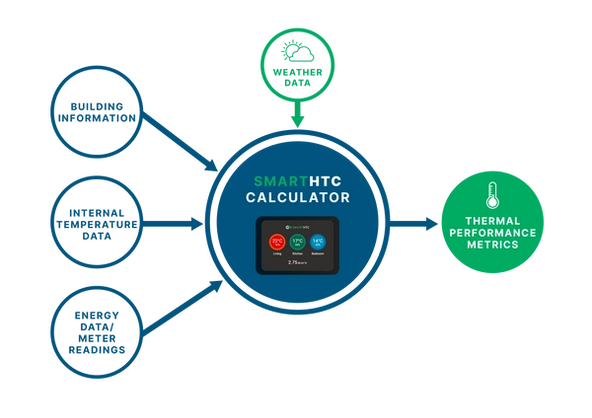Article
BTS Smart HTC secures further Government backing
Our exciting Smart HTC method for measuring the in-situ thermal performance of homes has today received commitment from the Department for Business, Energy and Industrial Strategy (BEIS) to advance to phase 2 of the SMETERs competition.

The competition specifically seeks to identify commercially viable techniques for using smart meter and other data as a basis for measuring the true performance of homes.
Having used phase 1 to further advance the features of our product offering and to demonstrate these to BEIS and their appointed Technical Assessment Contractor, we now advance to phase 2. Over the coming 2019/20 winter season we will field trial the method across a range of UK homes and assess its accuracy against incumbent methods such as co-heating and established modelling techniques such as SAP and dynamic simulation.
Smart HTC Product Manager, Richard Jack:
It’s fantastic news that BEIS and its assessment contractor have the confidence in our methodology, permitting us to advance to phase 2 of SMETER. The project exposes the Smart HTC method to extensive expert third party scrutiny and we now not only have the opportunity to test and further evaluate, we also start work with our partners Hildebrand, Elmhurst Energy, the University of Salford and others to integrate Smart HTC into meaningful, scalable measurement solutions for industry at large.
Further information about the SMETER project is available here.



